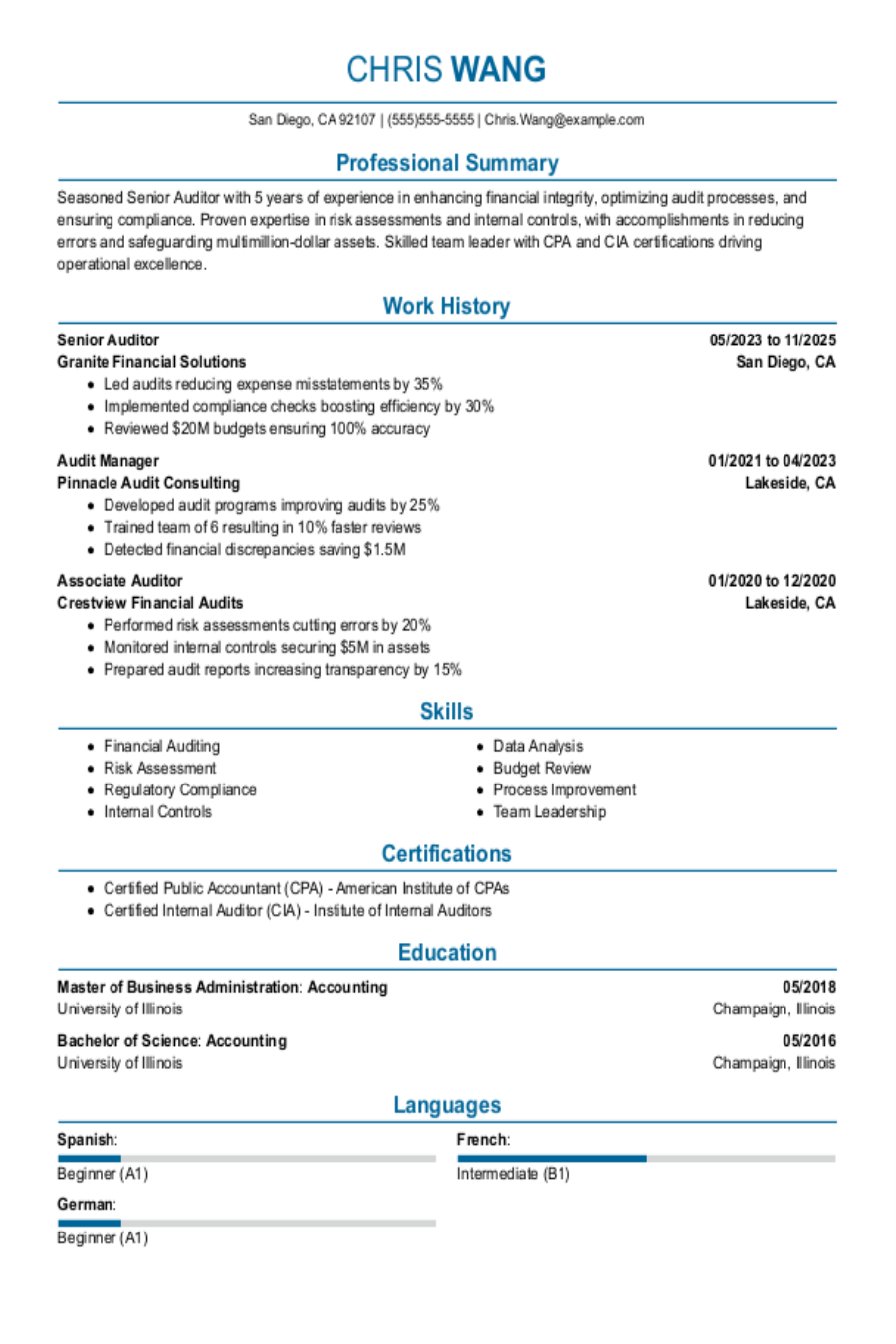Every career requires a different set of skills, but no matter whether you’re an entry-level writer, a veteran surgical technician or a midcareer teacher, your resume will feature both specific technical skills related to your career and some personal soft skills that demonstrate your positive working habits.
If you’re not sure which of your personal skills belong on your resume, wonder no more! Our guide will help you understand the role that personal skills play in a resume.
Here, you’ll discover:
- A personal skills definition so you can understand their role on your resume.
- Examples of personal skills you can use to build a resume that gets interviews.
- Practical tips to help you improve your personal skills.
- Key takeaways to help you remember what matters.
Need to build a resume fast? Try our Resume Builder. This tool offers tailored content suggestions for most jobs and formatting tips to help you create a resume that showcases your most impressive skills and abilities.
What are personal skills and why are they important?
Professional skills are the soft skills that enable you to work independently, manage your time, keep a clear and focused mind and collaborate with others.
A worker with a strong set of specific technical skills is a valuable asset to any organization, but no matter the career stage or field, a well-rounded candidate who works well with others and handles their responsibilities well is a diamond in the rough.
Not sure which personal skills are worthy of a spot on your resume? Start by checking out some resume examples from successful pros in your industry. Do their resumes highlight leadership? Attention to detail? Communication skills? Use these as clues to guide you toward the personal skills that are most likely to impress employers on your resume.
It might also help to look over the job ad. Most job ads will list several hard skills pertaining to the knowledge and experience that the ideal candidate should have. But many listings include both hard and soft skills, which helps employers find the most well-rounded candidate for the role and allows them to use applicant tracking systems (ATS) to filter out candidates who aren’t a good fit. Reading the listing and tailoring your resume will help you pass through these systems easily.
35+ personal skills examples for your resume
There’s no perfect list of personal skills for a resume that you can copy and paste. The skills you include on your resume should be specific to your career and reflect your actual strengths as a candidate and the requirements of the job listing.
With that said, here are some personal skills examples to consider including on your resume if they match your skill set and the job requirements.
Computer skills
Whether you’re a project manager, salesperson or a medical assistant, there’s no escaping the 21st century. With the information age in full swing, every career benefits from some level of computer literacy. The following computer skills will help you demonstrate how fluent you are in the technologies that keep the world turning!
Computer skills for your resume:
- Google Suite
- Excel
- Powerpoint
- Web design (HTML, CSS, JavaScript)
- Project management tools (JIRA, Asana)
- Point-of-sale (POS) systems
- Research skills
- Social media
Communication skills
Every role requires some communication, whether with customers, clients or internal teams. List the following skills on your resume to show employers that you can make yourself understood.
Communication skills for your resume:
- Written communication
- Verbal communication
- Teamwork
- Leadership
- Networking
- Emotional intelligence
- Conflict resolution
- Compassion
- Active listening
- Humility
Analytical skills
A preschool teacher might not have much responsibility for higher-level business decisions, but even if budgets and growth plans aren’t part of your job description, displaying broader analytical skills can help show that you know how to work with data and make decisive judgment calls.
Analytical skills for your resume:
- Strategic planning
- Analysis
- Critical thinking
- Decision-making
- Judgment
- Troubleshooting
- Prioritization
- Foresight
- Financial forecasting
- Budgeting
- Marketing and sales techniques
- Risk management
Creative skills
Maybe you’re not a graphic designer or an animator, but even if you don’t consider yourself in a creative career, your resume will still benefit from showcasing some creative skills. Creative skills show off your ability to innovate and think outside the box.
Creative skills for your resume:
- Ideation
- Innovation
- Brainstorming
- Mind mapping
- Creative thinking
- Conceptual thinking
- Pattern recognition
- Synthesis
- Concept development
How to list personal skills on your resume
Now that you have a solid idea of some good personal skills to consider for your resume, let’s look at some strategies for including personal skills on your resume.
Begin by analyzing the job description
Every resume strategy starts with the job listing. The job ad will include a list of responsibilities and qualifications that the hiring manager is seeking in the ideal candidate. These keywords can inform your strategy. Choosing personal skills that match the keywords from the job description shows how well your achievements match their needs.
For example, consider this job listing:
Our ideal candidate for the role of math tutor has the following qualifications:
- Strong knowledge of math subjects, including algebra, geometry, trigonometry, calculus and statistics.
- Previous tutoring or teaching experience is preferred.
- Excellent communication and interpersonal skills.
- Patience, empathy and the ability to adapt teaching methods to meet individual student needs.
- Strong organizational skills and attention to detail.
The bolded keywords are the personal skills that would make a candidate’s resume stand out.
Including personal skills from the job listing will help your resume appeal to hiring managers, but it will also help your resume pass through applicant tracking systems (ATS).
Highlight personal skills in your skills section
Use your skills section to highlight some of your most important personal skills. This section should include a balanced blend of specific technical skills and soft skills. Hiring managers value well-rounded candidates with a strong mix of interpersonal skills and technical proficiencies.
Incorporate personal skills throughout your resume
Highlighting your personal skills doesn’t stop at your skills section. Your work history section is another opportunity to show employers that your skills match their expectations. Use specific personal skills to describe your achievements in past roles.
Consider this example:
Math Tutor
ABC Learning Solutions, City, State
January 2020 – March 2024
- Provided individualized math tutoring sessions for students from elementary to high school levels, tailoring lesson plans to meet specific academic needs.
- Communicated effectively and empathetically with students, parents and teachers to foster a productive and positive learning environment.
- Adapted various teaching techniques to explain algebra, geometry, trigonometry, calculus and statistics clearly and concisely.
- Tracked, organized and reported students’ progress to parents and guardians, offering constructive feedback and recommendations for further improvement.
Your resume profile is another resume section that offers opportunities to showcase your skills. Don’t hesitate to pepper your personal skills throughout your resume. Your resume profile is a great way to highlight your most important skills first, while your experience allows you to show your skills in action.
Is this your first resume? If you’re a beginner candidate, a functional resume format is a great way to draw attention to your personal skills without relying on a long track record of employment.
Don’t forget to mention personal skills in your cover letter
Your cover letter is a critical part of your job search process. It should be chock-full of valuable qualifications, just like your resume. Use personal skills on your cover letter as you describe what makes you unique as a candidate.
Not sure where to start? Get inspired by looking at cover letter examples from pros in your industry. Pay attention to the personal skills that they use to describe their careers. Our Cover Letter Generator can also help you build a strong cover letter. Professional formatting help, job-specific content suggestions and neat cover letter templates help you submit your letter with confidence.
How to improve your personal skills
Improving your personal skills is a broad but worthwhile goal. The process of making these improvements will vary depending on the skill you’re working on. For example, getting better at conflict resolution and improving your time management are different processes. Nevertheless, there are a few ways that you can improve your overall personal skills.
Improve your personal skills by:
Targeting areas for improvement
Identifying your weaknesses is hard work, but can be the best place to start working on your personal skills. Pay attention to feedback from your colleagues and peers and focus on the areas where you’d most like to see your skills improve.
Making small changes every day
Instead of tackling improvements as a single big task, try breaking down your personal skills improvement goals into small bite-sized habits that you work on consistently every day. Making small improvements consistently can add up to big results down the road.
Relying on the professionals
Not sure how to get started? Try taking advantage of the wealth of knowledge available on the internet. Attend a webinar or try an online course to help you take a more structured approach to improving your skills.
More skills resources
Looking for help understanding, improving or listing a different career skill? Check out our other guides for help making the most out of your resume skills.
Now, let’s explore some key takeaways to help you remember what’s important!
Key takeaways
List personal skills on your resume
No matter the skills you’re hoping to showcase, your resume offers incredible opportunities to showcase what you can do. Use your resume profile, skills section and work experience to demonstrate how well-rounded you are.
Demonstrate interpersonal skills
Your ability to work well with others is critical to your communication and teamwork. By demonstrating your strength as a collaborator, you can show employers how well you’ll fit into their team.
Showcase analytical and creative skills
Emphasizing both your analytical and creative skills will show employers that you can handle data, think outside the box, form creative solutions and problem-solve.
Improve your personal skills
Look for areas of improvement, listen to feedback from others, form productive new habits and try out learning resources to improve your personal skills and develop as a professional.
Was this information helpful? Let us know!
Hailey is a career advice writer dedicated to helping job seekers excel in their careers.
More resources
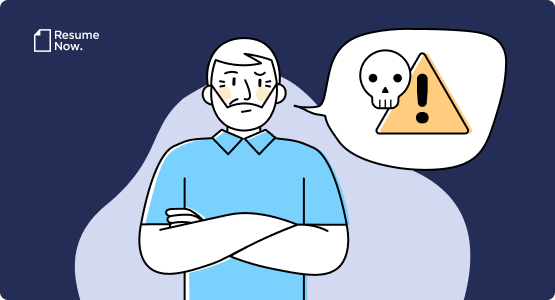
The Most Dangerous Jobs in America: Some Pay Less Than $40K, Others Top $190K
Resume Now s report reveals the highest and lowest paying dang...
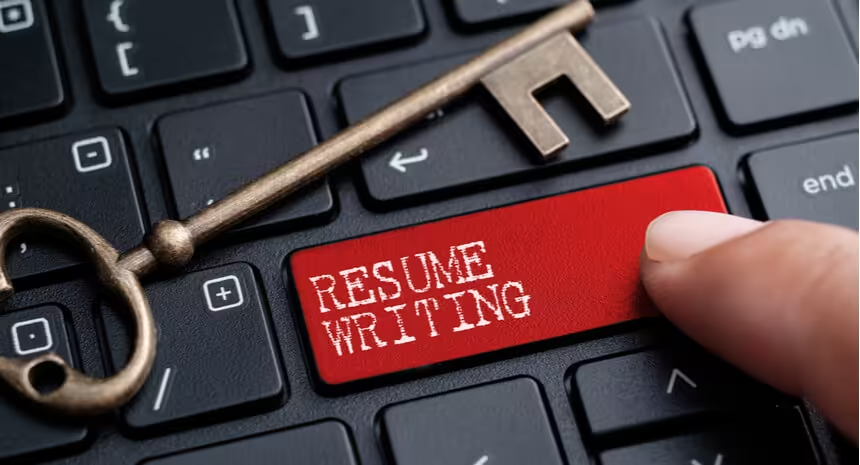
How to Write a Resume: Guide & Examples for 2025
If you re wondering how to write a resume that grabs attenti...
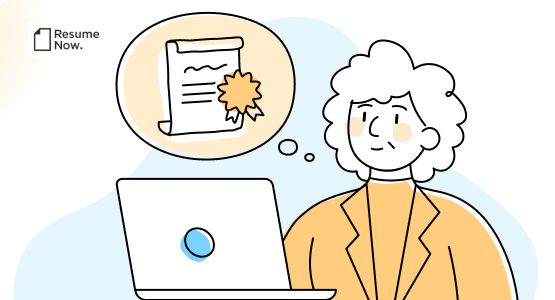
Still in the Game: 9 in 10 Older Workers Are Upskilling to Stay Competitive
The idea that older workers are resistant to change doesn t ho...
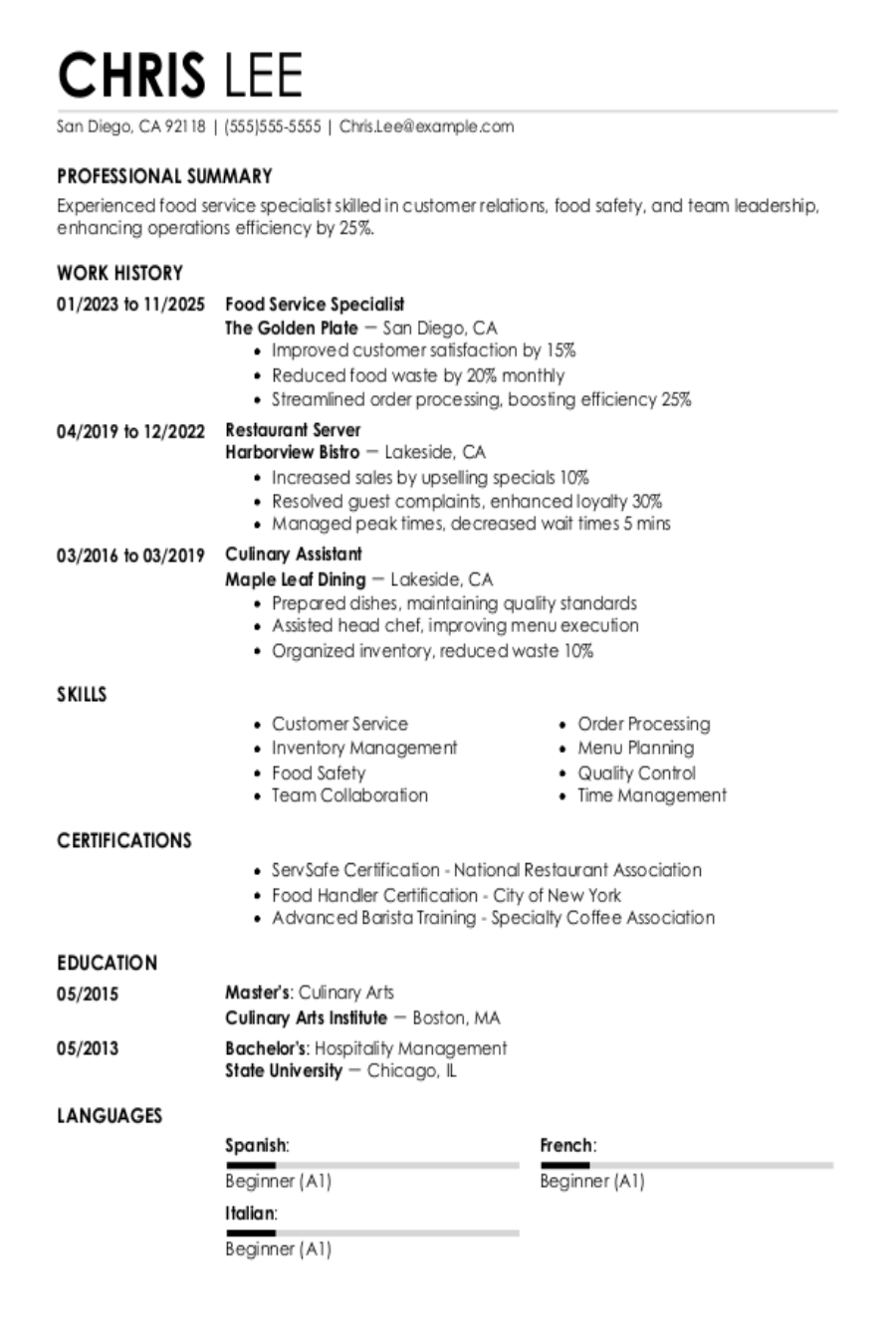
Food Service Resume: Examples, Skills & Template
Looking for work in food service? This guide will help you hig...
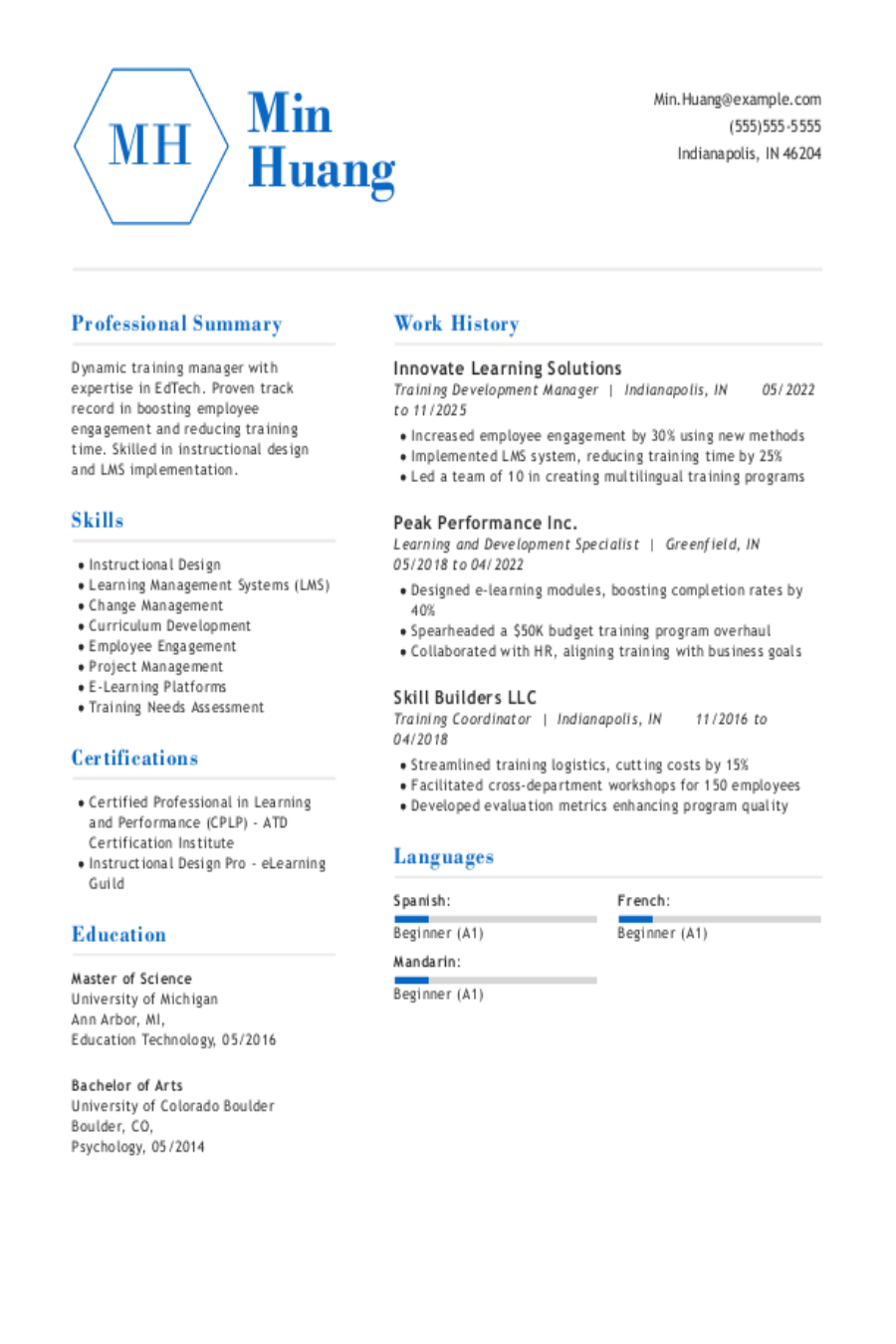
Top Training Job Resume Examples & Pro Writing Tips
Build & download your Training Development resume in a few sim...

